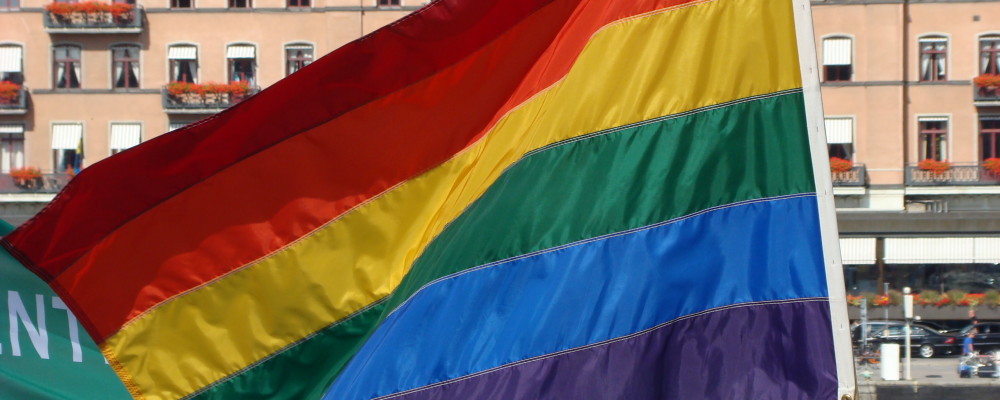On Sunday morning I flew back from Orlando to New York, after attending the World Congress on Positive Psychology. To my good fortune, the airplane had TV service, so I could spend the two hours staring at the screen embedded in the seat in front of me. Across all channels, everyone was talking about the US Supreme Court’s ruling about same-sex marriage. Clearly big news, summarizing a pendulum of eleven years of legislation and court deliberations, which started back in 2004 in Massachusetts. It was not surprising that this was the most-discussed topic of the hour, yet I found it interesting that it was not only reported, but almost unanimously celebrated. Instead of the typical balanced and analytical news, the programs reported outbursts of festivity in different parts of the country, weaving in interviews with senators and state officials from both sides of the political spectrum, most of which congratulated the decision and supported it.
Even more surprising was the fact that the on-screen celebration was not limited to programming. In between the programs, a commercial for a known pharmaceutical brand talked about families, showing same-sex couples. Unusual for a commercial company to take a clear supportive stance on a controversial topic. When I arrived at Newark airport, all newspaper stands showed the rainbow flag flying in different places in the country – with no mention of controversy or debate.
How is it that a topic that was deeply divisive for years becomes so vastly supported, almost unanimously perceived as a victory? The psychological explanation is simple:
The ruling is a statement that reflects the country’s perspective about the rights and the acceptance of all minorities, and all of us are minorities in one way or another. There is always some aspect about each of us that is at the tail of the statistical curve. Some of us are much fatter or thinner than average, much taller or shorter, talk with an accent, very shy or very loud. And, belonging to a minority group is always a source of stress, because minority status is focused on the differences between individuals, resulting in dehumanization, causing stress and health risks. If we can feel comfortable with the way we are different, our well-being improves. The German poet Heinrich Heine said that “where they have burned books, they will end in burning human beings.” But the opposite is also true: in a place where no book is burned, everyone feels safe. As of Friday we live in a society where each of us can feel comfortable with the way he/she deviates from average. This, in turn, gives all of us, however we stand on same-sex marriage, a boost of well-being.



Comments (1)
Thomas whatley
Nov 13, 2016 at 05:14 pmI do not care if same sex folks want to live together and call it marriage however the Supreme Court went outside the constitution to make their decision which may be a very dangerous thing to do. I frankly do not want 9 people making law for this nation as they see fit. Marriage has always been a state issue. Even now there are probably 50 different ways that marriage laws are written in the U.S. The 10th amendment reserves many laws to the prerogative of the states. The Supreme Court may want all 300 million in America to believe and think exactly the same way (their way) but it is not going to happen unless we dumb ourselves down to a mindless society. Some people may not like me and I may not like them but I promise I can still move right along with my life. Let’s be careful what we wish for. Countries that frown on different beliefs and values among its population sometimes muder a bunch of folks to stifle those different beliefs.
Thomas whatley
Nov 13, 2016 at 05:14 pmI do not care if same sex folks want to live together and call it marriage however the Supreme Court went outside the constitution to make their decision which may be a very dangerous thing to do. I frankly do not want 9 people making law for this nation as they see fit. Marriage has always been a state issue. Even now there are probably 50 different ways that marriage laws are written in the U.S. The 10th amendment reserves many laws to the prerogative of the states. The Supreme Court may want all 300 million in America to believe and think exactly the same way (their way) but it is not going to happen unless we dumb ourselves down to a mindless society. Some people may not like me and I may not like them but I promise I can still move right along with my life. Let’s be careful what we wish for. Countries that frown on different beliefs and values among its population sometimes muder a bunch of folks to stifle those different beliefs.